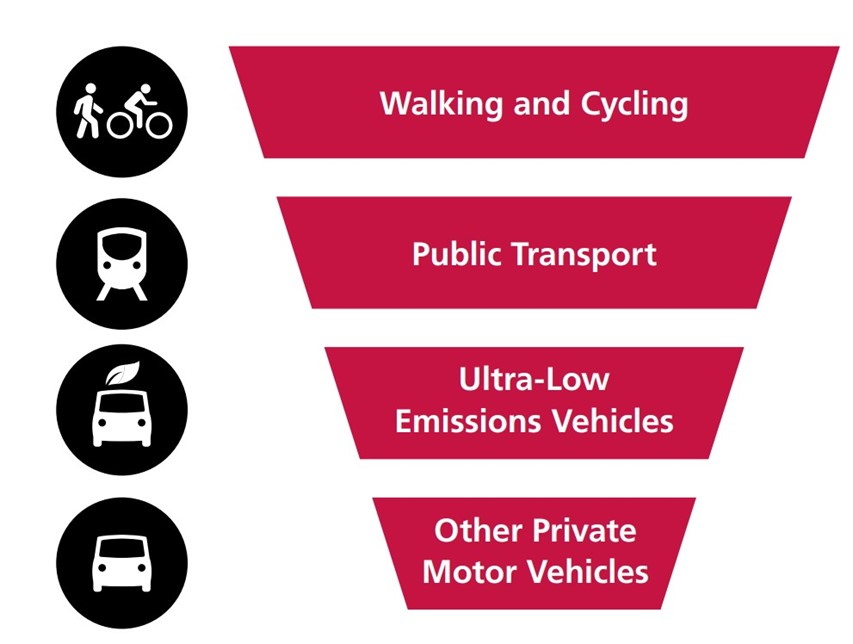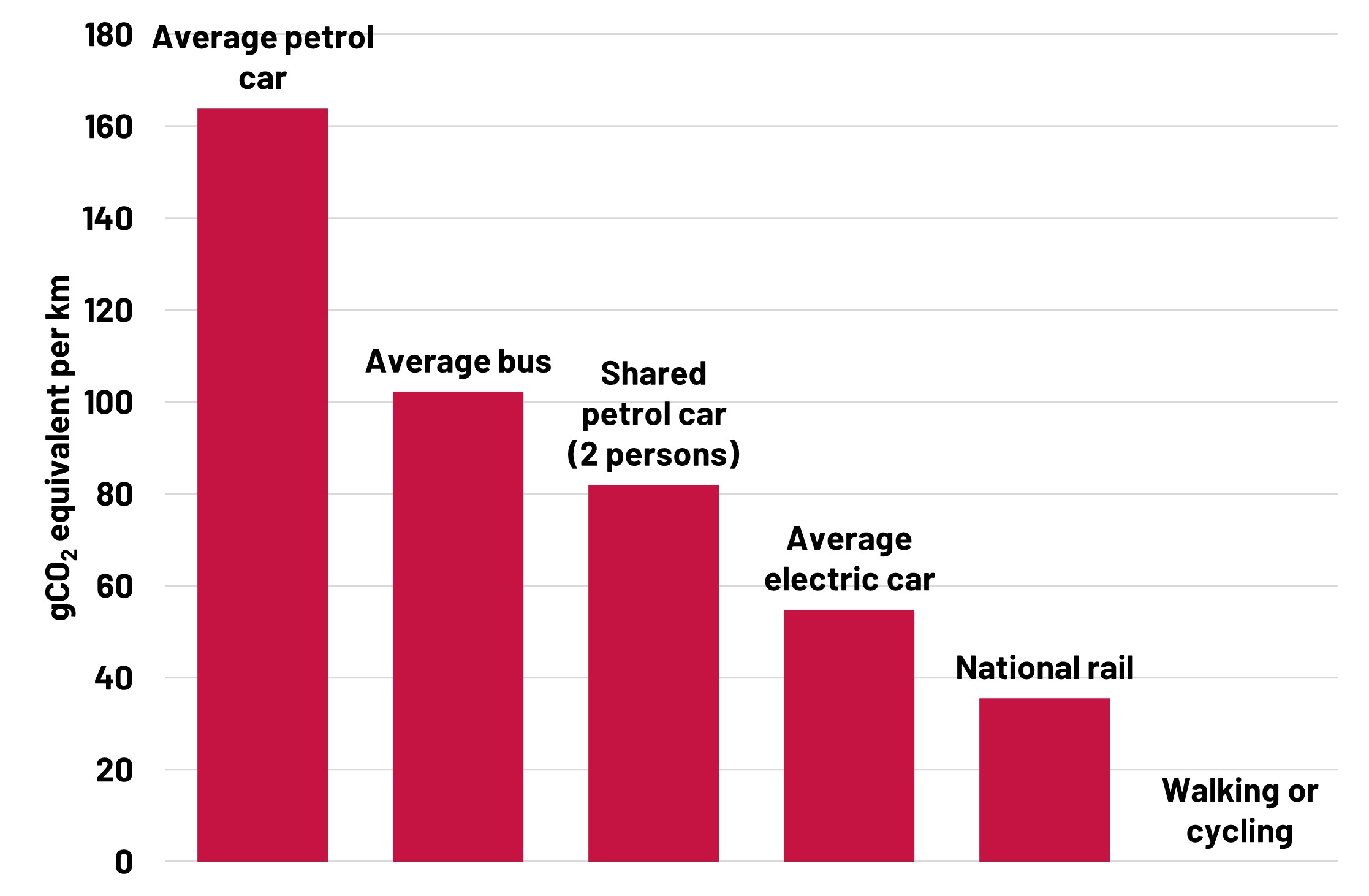Achieving net-zero will require action across the economy to reduce emissions. Councils play a key role as local influencers and facilitators, and through leading by example in their own operations and policies.
The Welsh national milestone is to achieve net zero greenhouse gas emissions by 2050, with the public sector looking to achieve net zero by 2030. Since 1990, carbon emissions in Wales have decreased by 35%. In 2021, transport was responsible for 14.9% of CO2e emissions, up from 11.4% in 1990. This makes transport the fourth largest source of emissions in Wales behind energy, business, and agriculture. 80% of workers in Wales commuted by car in 2021, making this an important source of carbon emissions to target.
The sustainable travel hierarchy can be useful to encourage employees and individuals to consider the impact of their journeys. The higher up the hierarchy, the more sustainable and greener the travel option. Post-COVID19, digital communication has also become a common sustainable alternative to travel, with many businesses adopting digital home and remote working. Shared transport and ridesharing can also be effective decarbonisation options when walking, cycling or public transport are not viable options.

If travel is a requirement for work, national emission factors can guide Local Authorities and individuals as to the least carbon intensive transport options available to them. The graph below shows the average grams per kilometre travelled per person on different modes of transport (2023 figures). Updated emissions factors are available at Government conversion factors for company reporting of greenhouse gas emissions

The resources available here have been designed to support Welsh councils to understand the benefits of, and how to decrease carbon emissions from their own business travel and staff commuting activities.
The resources cover six key areas:
- Ridesharing
- EV charging infrastructure
- Sustainable travel friendly facilities
- Remote working
- Staff incentives
-
Public transport incentives
Rather than tackle each of these areas individually, it can be economic to tackle multiple areas simultaneously as these policy areas have many overlapping aspects. It is strongly advised that councils appoint a Sustainable Travel Officer, or Sustainable Travel Team to manage and develop the sustainable travel strategies, policies and incentives outlined in these resources. It is also advised that councils conduct a staff travel survey to establish a baseline from which to decarbonise and gain a detailed understanding of their staff travel habits. An example staff travel survey from Energy Saving Trust is provided here.
The structure and responsibilities of each council will vary as will the most appropriate policy areas to explore locally. The council is best placed to determine the most appropriate approach to decarbonise staff commuting and grey fleet emissions.
These resources have been developed for Welsh Local Government Association (WLGA) to share with councils as part of its Climate Change Support Programme, funded by Welsh Government.